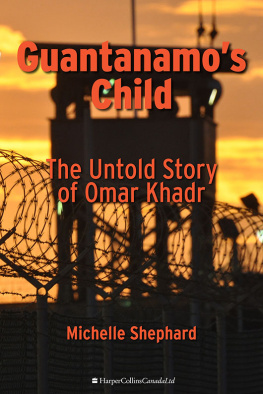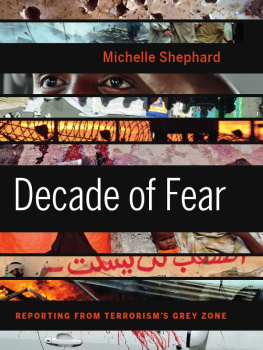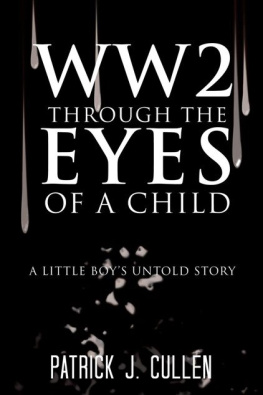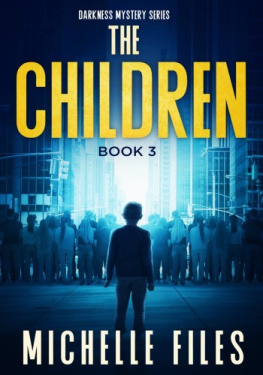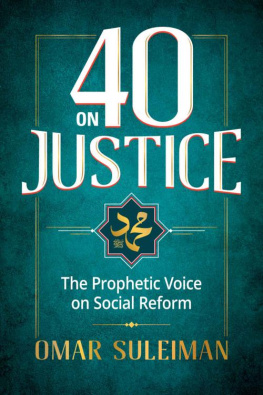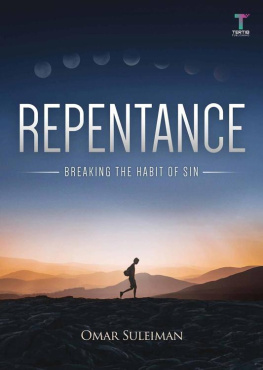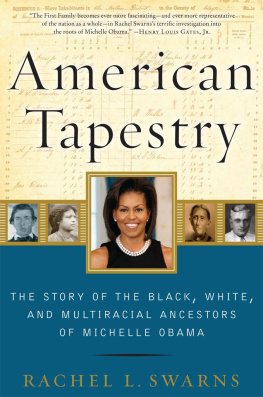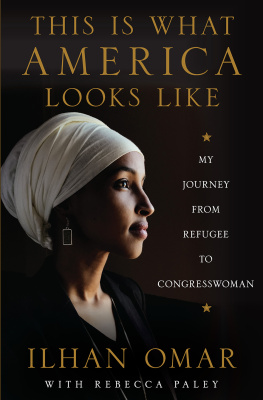Journalism can be a cutthroat, competitive and ugly business. That has not been my experience in writing this book, which would not have been possible without the help of other reporters. My thanks first to Miami Herald journalist Carol Rosenberg. She has been to Guantanamo hundreds of times and remains a thorn in the U.S. administrations side. Carol deserves a Pulitzer for her relentless work. The New York Times Tim Golden has also helped both personally and through his excellent investigative work from which Ive quoted often. Then there are those who have shared the surreal reporting experience that is Guantanamo. Thanks especially to my Canadian pals, Paul Koring, Beth Gorham, Sheldon Alberts and Bill Gillespie. Also to Andrew Selsky, Carol Williams and Bill Number One Glaberson.
I feel especially grateful to Tabitha Speer. Thank you for introducing me to your husband Chris and for your trust, Tabitha. To the Utah soldiers who welcomed me into their homes and brought me as close as I could come to being at that firefight July 27, 2002. Layne and Leisl Morris are wonderful people and I will always be touched by their hospitality.
Although they were not happy with my writing this book, Maha Elsamnah and Zaynab Khadr eventually took me into their confidence and spent hours explaining Omars upbringing. I appreciate the time they spent trying to explain a world Im not sure Ill ever completely understand. Thanks to Abdurahman Khadr for our many cups of coffee and for attempting to set the record straight.
The Toronto Star has been my home for a decade and was incredibly supportive while I was writing this book. Thanks to Editor-in-Chief Fred Kuntz and Foreign Editor Martin Regg Cohn. To Tom Walkom for leading me to this beat. To Tim Harper for his generous help and Washington hospitality. To Susan Delacourt, Tonda MacCharles and Bruce Campion-Smith for helping me navigate Ottawa.
Thanks to friends Linda Diebel, Marina Nemat, Scott Simmie and Julia Nunes for encouraging me to write a book. To Isabel Teotonio for so capably taking over in my absence.
To my good friends and London fixers, Jennifer Quinn and Simon Hunt.
Thanks to Tanya Talaga, Rita Daly, Patty Winsa and Jenny Guerard for their encouragement and friendship. To Betsy Powell. Im glad were going through this together.
When history judges Guantanamo, the leading characters will be the lawyers who have endured such frustration and personal sacrifice. Thanks especially to Dennis Edney, Nathan Whitling, Muneer Ahmad and Colby Vokey for our many long talks. To Rick Wilson, Bill Kuebler and Rebecca Snyder for their patience and help. To Clive Stafford Smith and Michael Ratner for their advice.
To Moazzam Begg, Ruhal Ahmed and Abdullah Almalki for trusting me with their stories when trusting must be hard after all theyve been through.
Thanks also to Jack Hooper for explaining his world to me and for his hospitality in the West. To Cmdr. J.D. Gordon, Lt. Catheryne Pully, Col. Dwight Sullivan and Col. Moe Davis for helping me fill in the blanks.
To Peter Bergen, Larry Wright and Nazim Baksh, whose work I have so greatly admired, for their advice.
This book would not be possible without the guidance of two very special editors. I had heard publishing was an even tougher business than journalism, but that didnt seem so at Wiley. Don Loney, for your skill, kindness and patience, thank you. To my friend Lynn McAuley. Your blue marker is wicked. This book was not possible without your brilliance, Lynn.
Thank you to my family. To my sisters Meg, Suzanne and Mary, for their love. To my parents, Dawn and Ron. I grew up thinking that being the daughter of an English professor and English teacher was a curse. What a blessing. No one has read this book more often than they have. Thank you, mum and dad, for your love and help.
Lastly, to Jim Rankin, a wonderful reporter, writer, photographer and friend. Thank you Jimmie, for everything.
The Khadr family lives in east end Toronto in the suburb of Scarborough, crammed into a second-floor apartment where posters of Saudi Arabian mosques cover the walls and the youngest son controls an army of video-game commandos from his wheelchair. Every so often, a slight, grey-and-white cat named Princess will wander into the living room, trying to avoid her brother, Slim Shady. Most days the cats seem to be the only ones who will venture close to the family who has been vilified in Canada. Most days the Khadrs dont seem to care what other people think.
The apartment is a reflection of the life the Khadr family has lived, shuttled between East and West, the children brought up memorizing the Quran and Green Eggs and Ham. It is a dizzying clash of culture and it is often hard to fathom that this family, who named a pet after an Eminem rap, once counted Osama bin Laden a friend.
On leaving their apartment you dont know whether to laugh or cry. The Khadr family is endlessly fascinating, infuriating, belligerent, simple, and yet complicated, sometimes nave, sometimes savvy. While some Canadians believe the Khadrs have been victimized, persecuted for their opinions and for crimes that have never been proven in court, the majority thinks they are dangerous and wants them kicked out of the country.
The Khadrs defy traditional description. Which is okay, because this isnt a book about them.
This is the story of only one Khadr, Omar. He is the soft-spoken, dutiful, second youngest son of the Khadr clan who has spent a quarter of his life in the U.S. prison in Guantanamo Bay. Omar was fifteen when he sat with heavily armed and bearded men in a mud house in a small village in Afghanistan on July 27, 2002. Someone in that compound had shot dead two Afghan soldiers who had demanded they put down their weapons and surrender. That sparked a long battle with U.S. Special Forces soldiers who eventually called in air support and reduced the compound to rubble.
Somehow Omar survived. The Pentagon alleges that the soldiers approached the rubble, believing everyone dead, and that Omar emerged and threw a grenade that killed Sgt. 1st Class Christopher Speer. Speer, a twenty-eight-year-old Delta Force soldier, had two young children in North Carolina waiting for him to come home. He wanted to become a doctor and was trained as a military medic. This was his first time at war.
Omar was shot at least twice before he collapsed and was captured. He had two massive holes in his chest and a wound that caused near-blindness in his left eye. The Toronto-born teenager was interrogated and held in the U.S. prison at Bagram air base in Afghanistan before being transferred to Guantanamo Bay in October 2002.
The U.S. administration is determined to try him for war crimes before a military commission, despite numerous court setbacks and a restive worldwide public that has grown weary of President George W. Bushs assurances that justice can be carried out at Guantanamo. If the case proceeds, it will be the first U.S. war crimes trial since the prosecution of Nazi commanders in Nuremberg. The world is immeasurably different from what it was in 1945, but it is hard to believe that history will equate a fifteen-year-old Canadian alleged to have killed a soldier with concentration camp commandants who exterminated thousands of innocent civilians.


